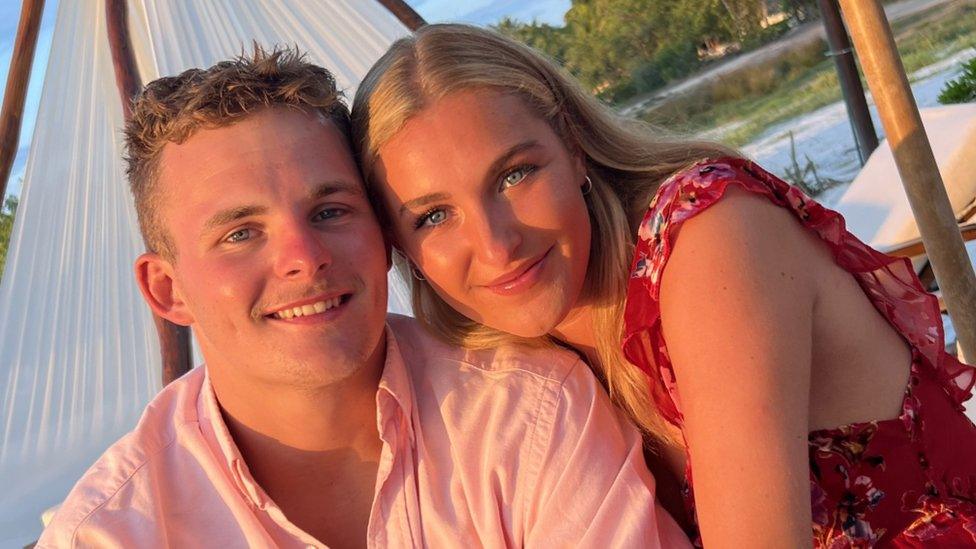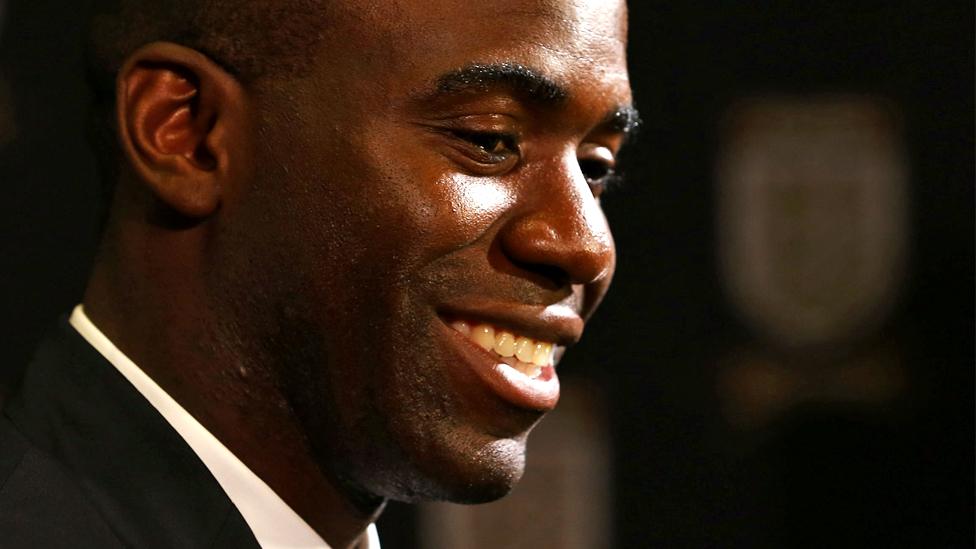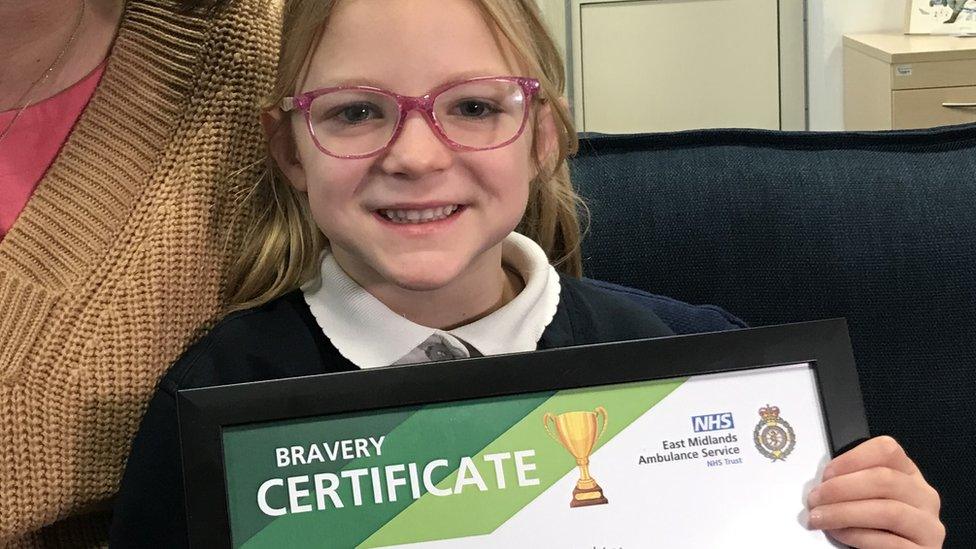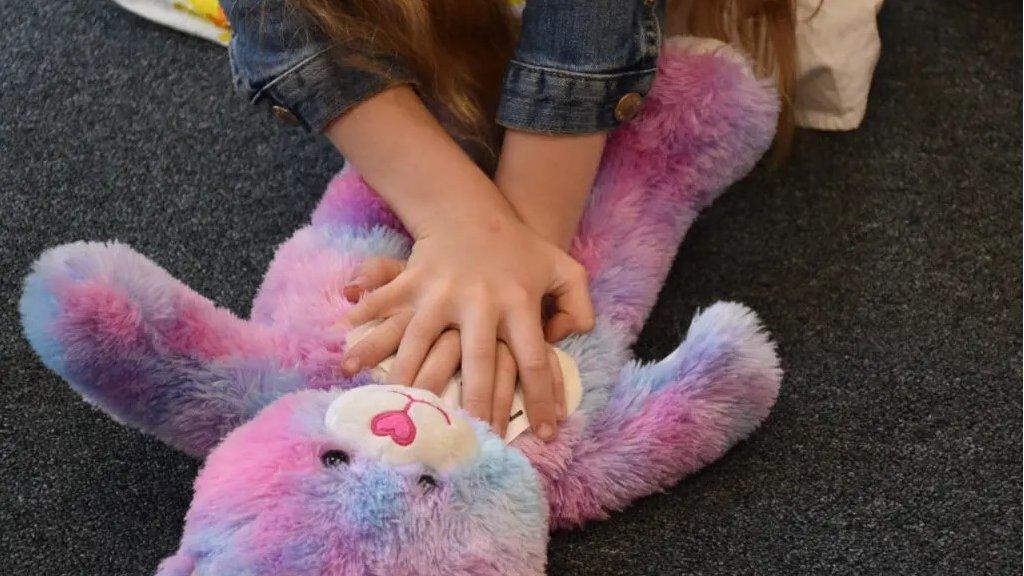Couple push for CPR training after cardiac arrest
- Published

Morgan MacRae and Kitty Williams want more people to have CPR training
A rugby player who suffered a cardiac arrest and the girlfriend who saved his life are campaigning for more people to learn CPR.
Morgan MacRae, 22, from Peppard, Oxfordshire, was unresponsive for 17 minutes after suffering an arrest in bed in August.
His girlfriend Kitty Williams, 22, performed CPR, which she had learned at university, until paramedics arrived.
He said extending CPR training would "make the world a safer place".
Mr MacRae, a hooker with Henley Hawks in the fourth tier of English rugby, was in bed at his brothers' house in London early on 11 August when Ms Williams noticed he was not breathing.
"He was gasping for air - I was shaking him quite vigorously," she said.
"His head rolled back and he literally went blue. His eyes went back - he was completely unconscious.
"It was terrifying - I called 999 and started performing CPR."
Ms Williams had been taught CPR while playing lacrosse at Oxford Brookes University.
She said: "Thank goodness I did know. I was confidently able to perform CPR on Morgan and know it was correct and helping him.
"You go into crisis mode - it's down to me now. I just kept going and kept going."
She performed CPR for about eight minutes, supported by the 999 operator, until paramedics arrived and eventually resuscitated Mr MacRae, after shocking him four times with a defibrillator.
'Trust the experts'
After tests in hospital, the cardiac arrest was put down to an ectopic heartbeat sending his heart into a "frenzy".
He was fitted with an S-ICD defibrillator implant.
The couple said their experience showed that "every minute counts" and have pledged to promote CPR training as widely as possible, starting with local schools.
Mr MacRae said: "Being the recipient of CPR, I asked friends and family 'would you know what to do?' and the general consensus was 'no, not really'.
"It was an early goal, to get as many people trained up with CPR as possible to make the world a safer place."
Mr MacRae, who won Henley's Young Player of the Year award in May, said he had already resumed rugby training and hoped to get back to full-contact play.
"There was no evidence exercise was something that caused this - if it had been on the pitch it would be a different story," he said.
"I wouldn't be playing a sport like rugby if I was nervous of lots of things. I've got to trust the experts and go with it."

How to perform CPR
If someone is unconscious and not breathing normally, you should call 999 and attempt chest compressions, according to the NHS, external.
Kneel down and place the heel of your hand on the breastbone at the centre of the person's chest
Place the palm of your other hand on top and interlock your fingers
Position yourself so your shoulders are directly above your hands
Using your body weight, press straight down by 5-6cm (2-2.5 inches) on their chest
Keeping your hands on their chest, release the compression and allow their chest to return to its original position
Repeat these compressions 100-120 times a minute until an ambulance arrives

Follow BBC South on Facebook, external, X, external, or Instagram, external. Send your story ideas to south.newsonline@bbc.co.uk, external.
Related topics
- Published13 October 2022

- Published20 December 2023

- Published16 October 2023
